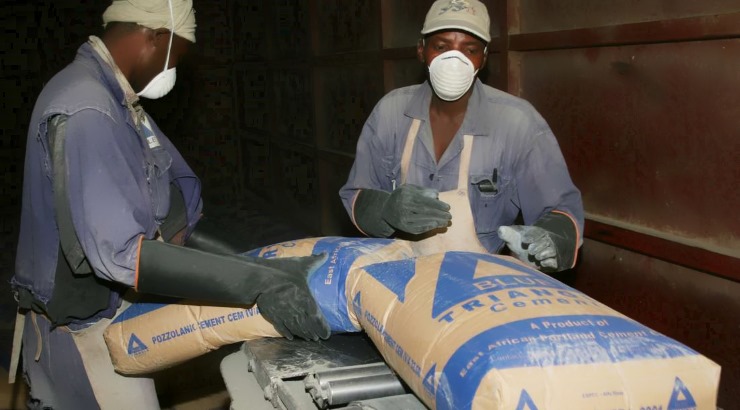Materials & Supplies
Listed Cement Firms Post Huge Losses as New Rivals Flourish
EAPCC and ARM Cement are deep in the red, with losses running into billions of shillings.

Listed cement manufacturers are going through a rough patch as declining sales and fast-rising costs continue to undermine their profitability.
East African Portland Cement Company (EAPCC) and ARM Cement are deep in the red, with losses running into billions of shillings – leaving Bamburi as the only profitable listed cement maker, although its profitability is declining.
EAPCC last month disclosed that its net loss for the six months to December had expanded nearly four times to Sh969.60 million on revenue contraction.
During the period, the company’s revenues fell by Sh660 million to Sh3.06 billion – with directors attributing this drop to the protracted election campaigns that resulted in a slowdown of the economy last year.
“Revenue declined by 18 per cent due to slow market uptake on account of prolonged political activity which dampened investment decisions and thus slowed down economic activities,” EAPCC said in a notice to shareholders last month.
Also in the red is ARM Cement, which posted a Sh1.4 billion operating loss in the first half of 2017 on reduced sales during the period.
The company that has posted losses since 2015 said its net loss rose 428.53 per cent to Sh1.41 billion from Sh266.78 billion in June 2016.
Revenue for the six months dropped by Sh1.32 billion to Sh5.35 billion, the company said in a letter to shareholders.
RELATED: Cement Firms Fight for Clients as New Rivals Flood Market
Bamburi Cement, the largest of the three Nairobi Securities Exchange-listed cement manufacturers recently issued a profit warning for the year ending December 2017, which means its net income for the period will not surpass Sh4.42 billion since it posted a net profit of Sh5.89 billion in 2016.
“The expected decrease is attributable to weaker performance of the business as a result of contraction of the cement market partly due to poor private sector credit growth, drought conditions together with effects of post-election periods,” the firm said in November.
According to UK-based investment bank Exotic Partners, local cement companies’ stocks are overpriced compared to those of their sub-Sahara Africa peers, with anticipated lower earnings for the 2017 fiscal year set to exert downside pressure on the stocks this year.
Exotic bases its findings on the fact that local cement makers are facing cost-side pressure on higher clinker expenses due to rising coal prices in the international markets.
RELATED: Cement Makers Dealt Blow as Mega Project Orders Decline
The firms are also contending with stiff competition from cheaper cement imports in the region and a growing gap between production and demand in a slowing economy.
Local companies have been making a significant amount of money by importing the commodity to other East African countries.
However, this market is fast declining – with exports to the region dropping 38.3 per cent to 420.4 thousand tonnes in 2016 from 487.4 thousand tonnes a year earlier, according to figures from the Kenya National Bureau of Statistics.
Low-priced cement from Pakistan, India, and China has flooded the regional market – threatening to drive local manufacturers out of business.
However, despite these challenges, newer cement companies appear to be doing extremely well. A recent study by the Standard Investment Bank shows that Mombasa Cement, the maker of the Nyumba brand, now holds a market share of 15.8 per cent behind Bamburi, which commanded a 32.6 per cent share of the market as at the end of 2016.
Mombasa Cement, which began operations in 2007, has dislodged EAPCC from the second to third position with a market share of 15.1 per cent ahead of newcomer Savannah Cement.














